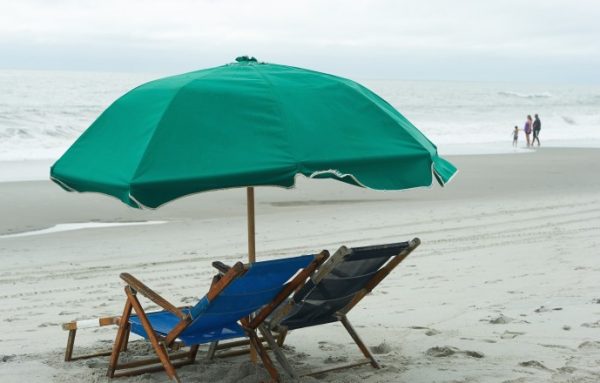Best Face Forward: Research Considers Dynamics of Relationships

The phrase “putting your best face forward” takes on significance in the work of UNC Charlotte researcher Amy Canevello.
Canevello, an assistant professor of psychology, studies the dynamics of relationships, including what motivates people in relationships and how those motivations affect the “faces” people show.
“When people want you to see them as smart or interesting, they’re going to do certain things to make sure you see them that way,” Canevello says. “We do it in our romantic relationships; we do it with our friends; we do it with others,” she says. “Our research suggests that having those impression management goals only works early on in a relationship.”
Later, those facades can break down, damaging or even tearing apart relationships, she and her research colleagues have found.
From a broad perspective, Canevello’s studies build on the concept that people are motivated by either a focus on self or on others. These two systems – called the egosystem and the ecosystem – affect people’s psychological wellbeing and their relationships.
“Think of an egosystem as if you are standing in a dark parking lot under a bright light,” she says. “You can’t see what’s beyond the light, only what’s within it. You do things only for yourself, making yourself feel better, making sure that you’re O.K.”
An ecosystem motivation would broaden out that streetlight’s beam to chase away the shadows and allow a focus on others. “Think of an ecosystem in a biological sense,” she says. “Everything depends on everything else. Everyone’s needs are important.”
Ironically, the harder that people with a self-focused motivation work for others to recognize and acknowledge them, the worse they fee l and the worse their relationships are, the research suggests. In contrast, people with ecosystem motivation feel more connection and belonging.
l and the worse their relationships are, the research suggests. In contrast, people with ecosystem motivation feel more connection and belonging.
“When people have impression management goals in their relationships, they become more depressed, more anxious and more stressed,” she says. “On the other hand, when people have the goal to give in their relationships, they become less depressed, less anxious and less stressed. They have higher self-esteem, and people like them more.”
The two systems work in tandem, and people shift back and forth between them. Canevello is particularly interested in determining ways for people to consciously move from one system to the other and uncovering what affects people’s abilities to do so.
She has found that an orientation toward giving may influence this phenomenon.
“Compassionate goals, and the goals to give and to be supportive of one another are a sign that the ecosystem is functioning properly and give an indication of when a relationship is at its highest,” she says.
The researchers caution that the compassionate and self-image goals refer to intentions toward interactions – not specific behaviors. They use the example of philanthropists who can be motivated to give either by the ecocentric goal of helping others or the egocentric goal of validating their generosity.
Canevello’s work includes three book chapters in 2015. Two are in press and the third was published in the APA Handbook of Personality and Social Psychology, Volume 3, Interpersonal Relations, with Jennifer Crocker of The Ohio State University. In their chapter, “Relationships and the Self: Egosystem and Ecosystem,” they identified a need for greater understanding of the conditions that affect the system from which people approach others.
“Identifying the conditions under which relationship behaviors are driven by one motivational system or another, the consequences of these systems for relationships and the people in them, and whether people can choose to shift from one system to another are urgent priorities for future research,” they wrote.
Canevello’s research initially focused on college students and the impact of their attempts to manage their roommates’ impressions of them. She extended the concept to other types of relationships and had similar findings across various types of relationships.
“My research has been evolving over time because these ideas can be generalized into a whole lot of different things,” she says. “I can question other things and think about new avenues. I can always give more insight. I want to start looking at race relations and work domains and see if there is the same correlation that we have found with other relationships.”
A major area of emphasis for Canevello is relating her research to the lessons she teaches in her classes.
“I try to share with students the data from my research, because there’s so much data supporting all the ideas I’ve told them about,” she says. “You know the teachers that are just there to teach versus the ones that are really passionate about it and really want you to get something out of it?” Canevello – likely motivated from the ecosystem – strives to be the latter.
Words: Bailey French | Image of beach: Lynn Roberson, Canvello photo courtesy of Canevello